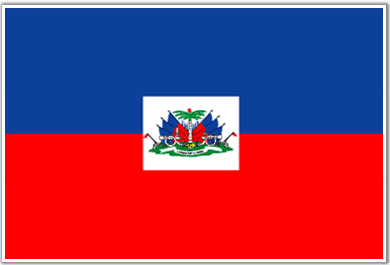Haiti: Communities oppose mining law
According to a formal protest to the World Bank filed on January 7 by the Haiti Mining Justice Collective, the Bank agreed to help the Haitian government rewrite its mining laws in March 2013, and several months later, a task force comprised of representatives of several government ministries and Bank experts began drafting a new mining law.
The following article was published in the January-February 2015 NewsNotes.
In December 2012, Haiti’s Office of Energy and Mines awarded exploitation permits for full-fledged gold mining operations. However, the Haitian Parliament passed a resolution calling for a moratorium on these activities in February 2013. The resolution states that these exploitation permits violate the Haitian Constitution because they were granted pursuant to mining conventions that were never ratified by Parliament.
According to a formal protest to the World Bank filed on January 7 by the Haiti Mining Justice Collective, the Bank agreed to help the Haitian government rewrite its mining laws in March 2013, and several months later, a task force comprised of representatives of several government ministries and Bank experts began drafting a new mining law. Some members of the Haiti Mining Justice Collective, which is comprised of communities and community-based groups and social organizations from mining-affected departments, as well as six human rights and social movement organizations, “obtained a copy of the Draft Mining Law dated July 31, 2014, and have learned from government officials that this version was submitted to the Prime Minister’s Office, but has not yet been presented to Parliament. To our knowledge, this version of the law has not been made public; it has neither been translated into Creole … nor shared or discussed with mining-affected communities.” Following are excerpts from a press release detailing the January 7 filing:
Haitian communities and organizations filed a complaint with the World Bank regarding Bank-supported activities to develop Haiti’s mining sector. The complaint alleges that the Haitian populace has been left out of World Bank-funded efforts by the Haitian government to draft new mining legislation intended to attract foreign investors to exploit Haiti’s gold and other minerals. Complainants contend that the Bank has failed to follow its own social and environmental safeguard policies or ensure that the new legal framework adheres to international best practices. They fear that allowing the mineral sector to develop without much-needed human rights and environmental protections and without public consultation could harm rather than help Haiti.
“The mining law will attract investment from foreign mining companies and yet the government does not have the ability to monitor environmental impacts or to promote the interests of the affected communities,” said Nixon Boumba, a representative of the Kolektif Jistis Min (Mining Justice Collective). Haitian people who have had the chance to learn about the government’s efforts to develop the sector share serious reservations about the new mining law and the broader effort to encourage mining: over 400 people in Haiti have signed a petition stating their concerns with mining sector development and demanding access to accurate information about mining and its potential impacts on [the] people and well-being of the country. The petition also requests a national debate and a full, public review of this strategy before the proposed mining legislation is finalized.
Some communities in Haiti have already had negative experiences with companies exploring for minerals on or near their land. ‘We have seen impacts that make us worry,’ explained a complainant and community leader from northern Haiti. ‘People who have begun to understand what mining could mean, what an open-pit mine is, they are worried about how it will affect the environment and the way we live now.’ Communities also claim that companies have already drilled and excavated on their land without seeking proper consent.
Complainants also fear the consequences of encouraging mining without ensuring the Haitian government’s ability to enforce social and environmental protections. The government has suffered from inadequate resources and failed regulatory processes for years, and the country’s recent protests and governmental instability underscore ongoing capacity issues. …
“The World Bank’s assistance aims to change the entire legal regime for mineral mining in Haiti,” said Sarah Singh of Accountability Counsel, an organization representing affected Haitian communities. “Given the serious social and environmental risks associated with this industry, the Bank must ensure that the new law is developed with participation from civil society and includes provisions to protect human rights and adhere to international best practices.”

